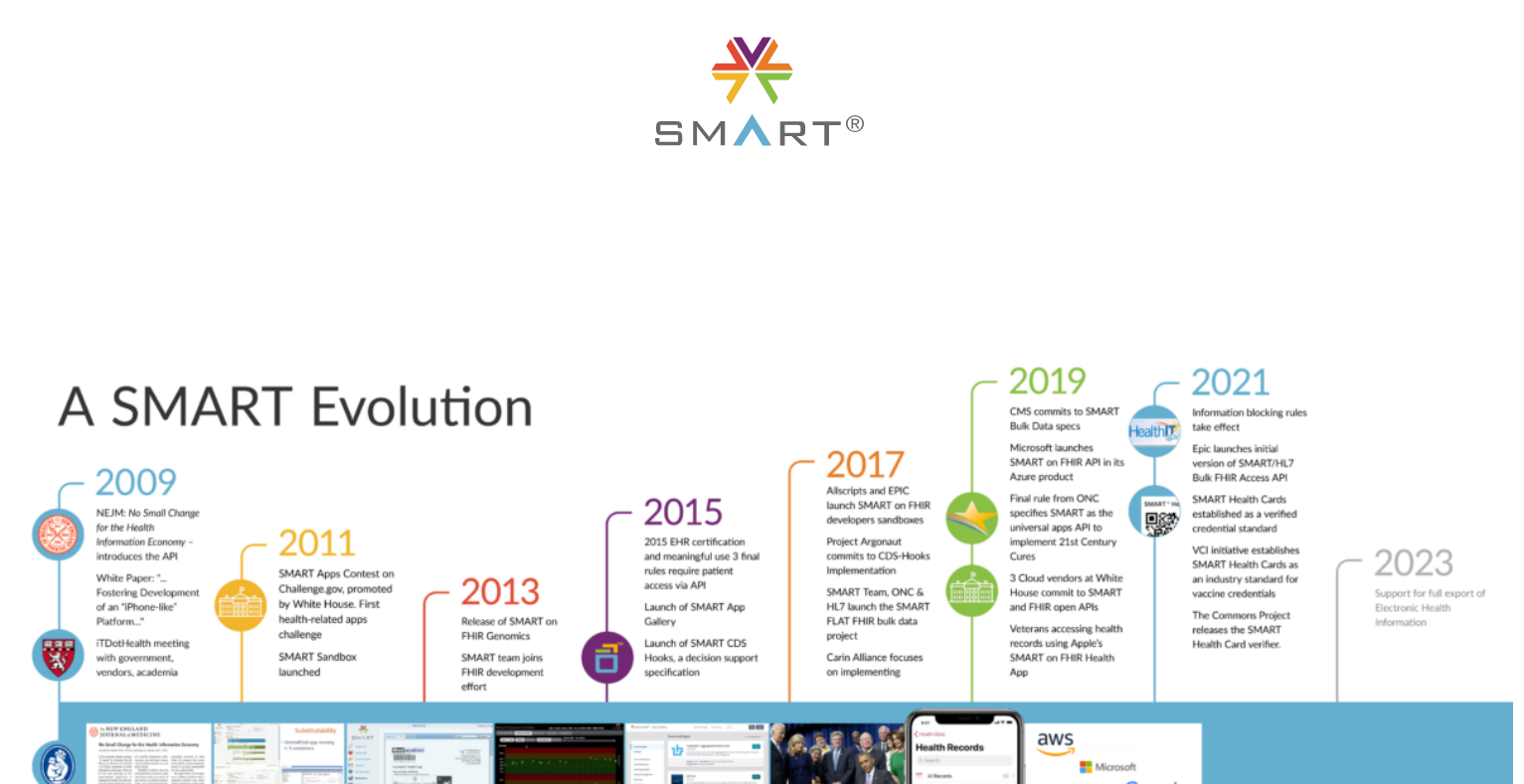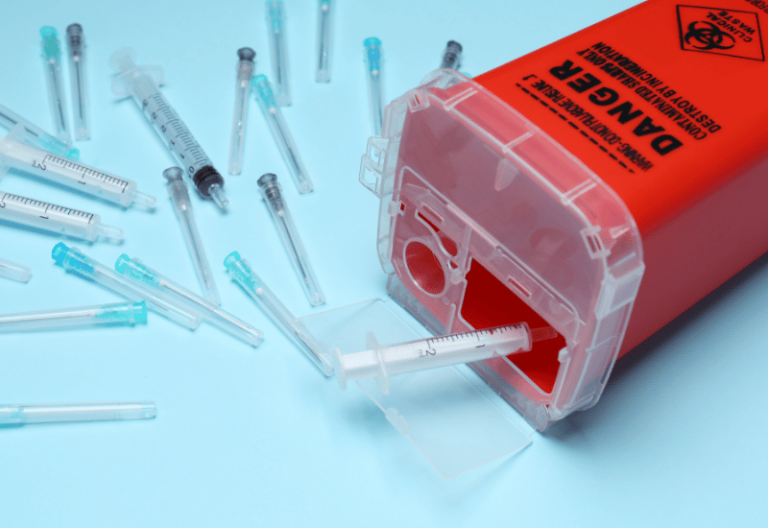Having applications that can work universally within the healthcare ecosystem reduces the risks associated with interoperability issues and data silos. That is what SMART on FHIR is for. The open-source universal API simplifies healthcare interoperability, enabling medical providers and patients to seamlessly access data across different systems.
Here’s everything you need to know about this API.
Table of Contents

How Does SMART on FHIR Work?
The Substitutable Medical Applications and Reusable Technologies (SMART) on FHIR (Fast Healthcare Interoperability Resources) enables third-party applications to access and share patient data from Electronic Health Records (EHR) through FHIR. In simpler terms, the FHIR server standardizes the process of requesting and accessing data on the SMART platform.
SMART on FHIR operates through the following steps:
- Authorization: Request for access from the FHIR server with data specification
- Granting Access: Sends authorization code to the SMART app
- Exchange of Codes: Authenticate requests using an access token
- Data Access: Securely access FHIR resources via the SMART app
Steps to Create SMART on FHIR Apps
Building universal applications following the SMART on FHIR standard involves several steps:
- Define the application scope: Make sure to identify and understand the nature of your application. You can utilize libraries in different languages like Swift, JavaScript, and Python.
- Ensure your app is HIPAA-compliant: Implement security standards such as OAuth 2.0 and OpenID. You also need to manage access permissions and follow HIPAA security and privacy measures such as data encryption and authentication.
- Develop key features: Depending on your needs, you must determine if your app targets broad or individual patient data.
- Conduct rigorous testing: Don’t forget to implement thorough testing to ensure flawless data transmission and receipt.
- Deployment: You can proceed to the SMART on the FHIR launch upon confirming that everything works as planned.

Benefits of SMART on FHIR
Healthcare IT professionals can seamlessly integrate healthcare apps using SMART on FHIR. It provides a fast, flexible, and scalable framework for medical providers to transfer data across existing healthcare systems.
Among the advantages that this API offers are as follows:
Efficient data exchange
SMART on FHIR offers seamless and secure access to healthcare data. With SMART’s inclusion in the 21st Century Cures Act, the platform will become the standard for integrating and accessing EHRs. The SMART on FHIR API simplifies EHR integration by using a standardized mode of requesting and authenticating resources.
Increased patient engagement
Clinicians can take advantage of enhanced document workflows to improve patient engagement. SMART FHIR facilitates data access so patients can actively participate in their healthcare journey. With it, patients and medical providers can communicate better to overcome the challenges of transmitting fragmented information.
Reduce infrastructure costs
Instead of developing new apps for data exchange, healthcare IT professionals can rely on the open-source API to integrate medical data. With flexibility and scalability, developers can create programs that run on systems compatible with the SMART on FHIR standards.
Ensures authorized access to patient data
SMART on FHIR guarantees data security by requesting consent and providing tokens before granting access. When third-party apps request to view confidential data from the platform, the universal API will deploy additional security measures to authenticate the request. It also keeps applications within EHR systems up-to-date with the latest security protocols.
Boosts efficiency and productivity
The SMART platform allows medical providers to employ specialized tools within their existing workflows to enhance efficiency. Furthermore, SMART on FHIR enables organizations to integrate third-party apps into their clinical data systems. This plug-and-play method encourages healthcare professionals to continue innovating their systems and applications for better patient outcomes.

Features of SMART on FHIR
SMART on FHIR is crucial in healthcare interoperability, for it simplifies the integration of disparate EHR systems and other health applications. This transformative approach enhances EHR functionality and promotes a better user experience.
The following features are what you can usually find on a SMART platform:
- Standardized interface: You can connect healthcare apps seamlessly without any disruptions.
- EHR integration: Healthcare providers can integrate their healthcare apps with their existing EHRs.
- FHIR compatibility: Standardized clinical data extends interoperability across healthcare systems.
- User authentication: There’s a secure framework for user authentication, such as the industry-standard OAuth 2.0 protocol to manage medical data.
- App authorization: Only verified apps can access health information and perform specific functions.
- Open standards: SMART fosters innovation and compatibility across diverse platforms to ensure medical providers get the most out of their apps.
Impact of SMART on FHIR in the Healthcare Industry
Combining the SMART platform with HL7’s FHIR standard offers numerous benefits for healthcare organizations and patients. It’s a powerful solution for streamlining data exchange and, at the same time, enables developers to continue building universal health applications that can help improve the quality of care and patient outcomes.







